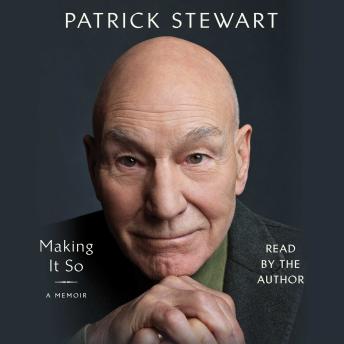One big chunk of my life finished in 2004 – I left the group that ran Women’s History Month. I was one of the founders of WHM in Australia, so I wrote about it in several places that year. This is one of the pieces. It was, initially, one of the lost bits of writing, then a feminist organisation published it, then I put it on my own blog, one Women’s History Month. I must have liked it a lot, to push so hard for it to be visible at a time when I mistrusted every word I wrote:
For five years Women’s History Month and mid-life crises had a lot in common. Me.
#
I worked on Australia’s Women’s History Month from 2000-2004. From the very beginning it force d me to rethink some basics about who I am and what my heritage is. I had to think about what I meant by feminism (which wasn’t what I thought I meant at all) and, more than anything else, it made me treasure a much wider range of women’s experience. Pretty big stuff.
So how did this pretty big stuff happen?
My view of history used to be shaped by my university training. Nine years of unrelenting full time history study has to have fixed something in my brain, after all. I came out of those nine years dedicated to the European Middle Ages. My passion for past is for intellectual baggage and culture, things like epic poetry and temporal awareness and obscure aspects of medieval literature. Always, always Medieval.
In March 2000 I found myself jostled by everyone else’s much more recent memories. Around me, for the whole month, people were talking about recent history. I read everything they wrote: I had to, because I was the technical backup for the Australian online program. I didn’t just read what people posted to the web, I had email and telephone conversations, because the women who ran into technical trouble were only too happy to find an historian at the other end of the phone and to chat about women’s history. There is nothing like reading for opening doors in the mind. Almost nothing; my mind-doors opened as much from those conversations as from the reading.
I read expert and personal views on everything from women in the labour movement, through women’s right to vote to how society thinks women ought to act. In this recent history I could see something startlingly different to my more dispassionate view of how epic tales were told in the twelfth century told and why the Arthurian stories developed the way they did: I was starting to see links between the intellectual baggage people carry, and the lives of people I know. I had to expand my definitions. One of my favourite terms of the past few years has become ‘portable culture.” In my mind this does not refer to lunch boxes featuring superheroes; it is an ever-changing array of ideas and judgements that we carry round with us. It is the rose or purple or psychedelic coloured glasses we see the world with, and the frameworks that we use when we try to explain our own worlds.
The experience of Women’s History Month started me wondering about other things as well. Where did I come from as a feminist? Why was my feminism softer than the public hard image of a tough militant political activist? Did I have role models? And why feminism and history? Gillian-as-historian became Gillian-the-person: I am more than just a repository of really interesting knowledge and ideas.
There are few declared feminists in my family. There is a cousin who edits a left wing newspaper. We always say we needed both her and my Uncle Sol in the family, to balance each other. Uncle Sol was as far to the Right, as my newspaper-editing cousin is to the Left. Very few other members of my family are active politically, though my father flirted with the idea in the 1940s. And my family makes no political judgements in terms of who comes to dinner; the hard right and hard left are as welcome as everything in between. So I did not inherit a set of political views from anyone, and there was no pressure from the family to become involved in politics and the women’s movement.
When you define feminism in terms of life style and life choices, however, rather than politics, the views were much stronger and the legacy greater. I had more role models than you can poke a stick at.
My cousin Linda, for instance was a composer and music critic. She was 103 when she died, just a couple of years ago.
Linda was the first woman in my life to talk openly about what it was like to hold down a job in a very male environment. One story sticks in particular. She told this to me at Passover many years ago, which was a very appropriate time in the Jewish calendar for telling it, since we all tell stories at Passover. Normally they are about fleeing from Egypt, and how hard it is to get the kids to do any work around the house.
Linda told me about her early days as a journalist. When she was a young music critic, she wrote her pieces and submitted them. The sub-editor looked at them, OK’d them, then put them in a drawer and forgot about them.
Linda was infuriated by this. In fact, as time passed and more and more of her writing never saw printer’s ink, she became quite tempestuous. Linda has always been a tiny woman, and this was over a half century ago, so ‘tempestuous’ was very restrained and ladylike. She approached the sub-editor and asked, “Why aren’t you printing my stories?”
He prevaricated and made excuses, but eventually the answer came down to, “Because you are a woman.”
Linda then did a very unexpected thing. She took her stories and went to the sub-editor’s boss. She placed them on his desk and said, “Read these.” He read them, and said that they were good. The sub-editor was ‘persuaded’ to treat Linda like a real journalist.
Eventually, he left the newspaper, for other reasons. He walked jauntily up to Linda on his last day and, looking down at her face, said, “It’s D-Day. I’m going.” Linda looked back up at him and said, “No, it’s V-Day. You’re going.”
When I started doing feminist things, Linda was the least surprised. She told me about my great-aunts who ran a specialist shop in Collins Street in the 1930s. They refused to get married, she said, because it would have meant giving up their annual trip to Paris, and they would have not been able to upset my grandmother by arriving everywhere in a chauffeur-driven car.
#
Linda was not my only influence, though. My mother taught geology. Rock samples sat on the kitchen bench next to home-made biscuits. When she was sent on a big interstate field trip, I had great trouble persuading her that her geological hammer could not go in her handbag.
“What if I need it during the trip?”
“You won’t need it until you get there, Mum. Put it in your normal luggage. The security people won’t like it when it appears on their scanners.”
“No, I can’t do that,” she said, “I might have to get a piece of rock en route.”
“Mum, you are flying.”
“So what?”
#
We were taught to cook at the same time as we were taught to use scientific method.
This led to friction when I was seventeen. Embryo scientists do not become historians. The feminism was fine. As long as I didn’t grandstand or show off, it was useful. But history? We didn’t have any historians in the family and she wasn’t sure she wanted me to be the first. She has since recanted and is now a volunteer museum guide.
When I started looking to find other influences, strong women emerged just about everywhere. I told my mother about this piece and she told me to include my grandmother. My grandmother was a big macha (very important person) in the National Council of Jewish Women. This has led me to some extraordinarily interesting work, like the preparations for the Australian NGO part of the UN Beijing + 5 meeting. But that was not what my mother meant, when she said not to forget how my grandmother made me a feminist. This is the story she tells:
“Mum always cooked fish for big functions. One year NCJW combined with the Red Cross and they hired the Town Hall, and had a fete. Mum fried the fish. And she fried the fish. And she fried the fish. To make sure everyone ate this fried fish, she would cook some onions alongside. The scent wafted through the air vents to the street. That fish disappeared like snow in summer, and the Red Cross did particularly well that day from passers–by, who followed the cooking smells.”
I had not thought of feminism as related to fried fish, but Mum was right, and it is.
I was thinking more of my late cousin Edith, who used to work for the Blood Bank. She helped Mum train me as an embryo scientist almost as soon as I could speak. She also taught me to enjoy Persian rugs.
Once when I was visiting we started talking about family recipes. Edith managed to qualify as a doctor in the 1930s, escape Vienna before the Shoah, then survive Australia, despite the fact that Australia recognised neither her medical degree nor anything else.
In the previous war, it was her mother who had been the alien. She was Hungarian and had moved to Vienna because of her Viennese husband. Women do this sort of thing all the time. But this was not “all the time”, it was World War I. Her husband was guarding the aqueducts, and was almost the only person Edith’s mother knew in the city. She had very young children, and life was a struggle.
Then she heard her husband was to be sent to the Russian front. To be alone with young children in a strange city during a major war is not an enviable thought. Edith always sought sensible solutions to troubling situations, and this is exactly what her mother did. She made an appointment to speak with the wife of the Governor of the city, another Hungarian.
The Governor’s wife fed her coffee and linzertorte and listened carefully. Edith’s mother left with the recipe for the linzertorte and a promise that the Governor’s wife would see what she could do. Edith’s father never made it to the Russian front, and we still have that recipe for linzertorte. I make the cake occasionally. And from now, when I make it, I will think of the many reasons it became inevitable that Gillian, an historian, would also end up a feminist.



